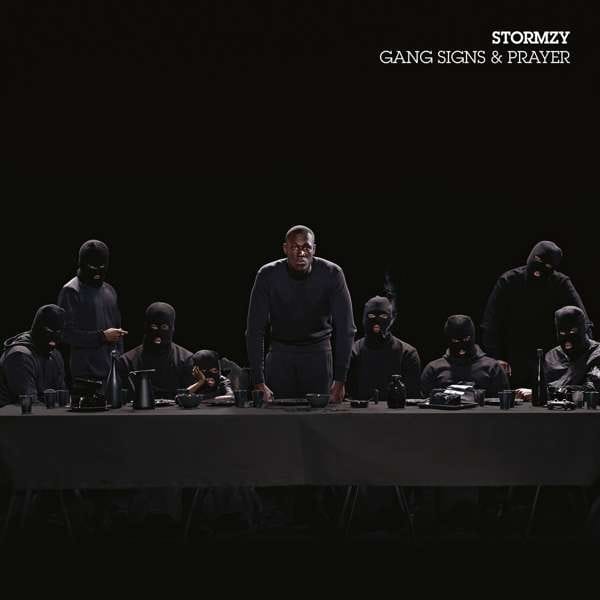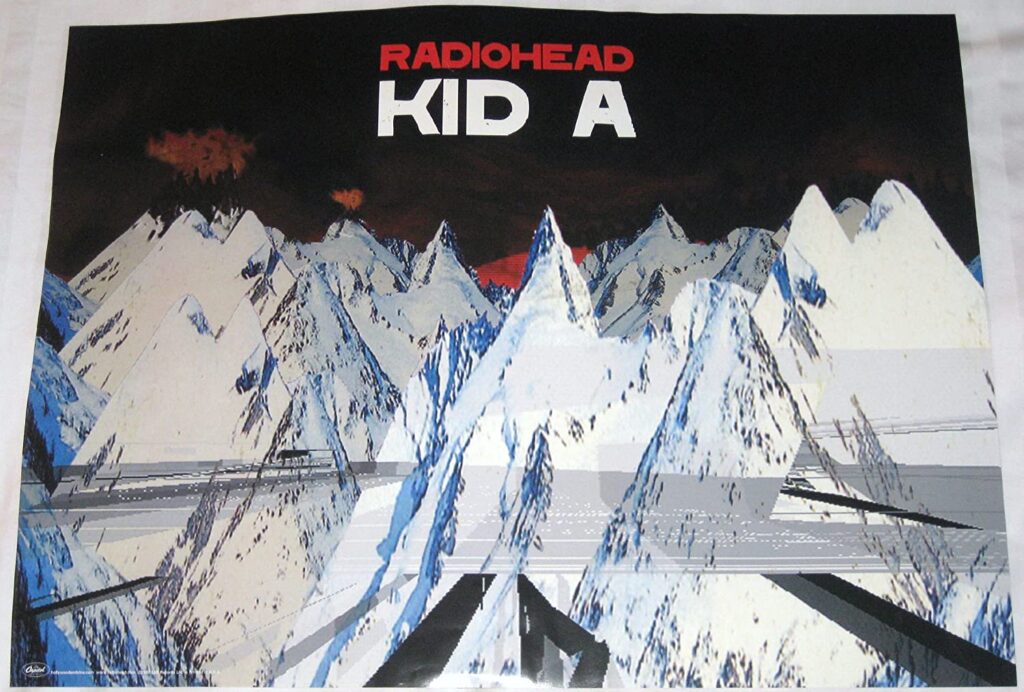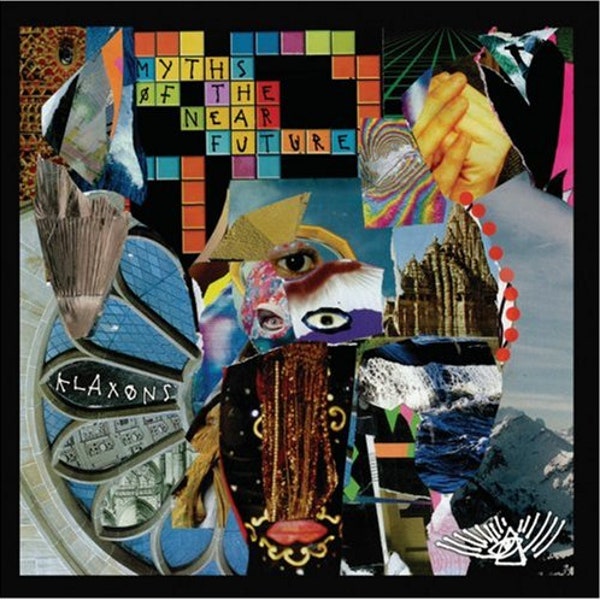With a band like Radiohead it is difficult to know where to start, there is so much to say. I first encountered them when they had already had great deal of success and were somewhere in the middle of their career. I think the first albums I bought by them were Pablo Honey and OK Computer. I remember thinking that the first album was mediocre, the band were clearly still developing as an act and had not yet found there voice. When I got round to checking out OK Computer I felt I had discovered something completely new. The album was high concept but not at the expense of musicality, nor did any of it feel pompous as some “progressive” (I really hate this word, I hope it dies a death) music can be guilty of.
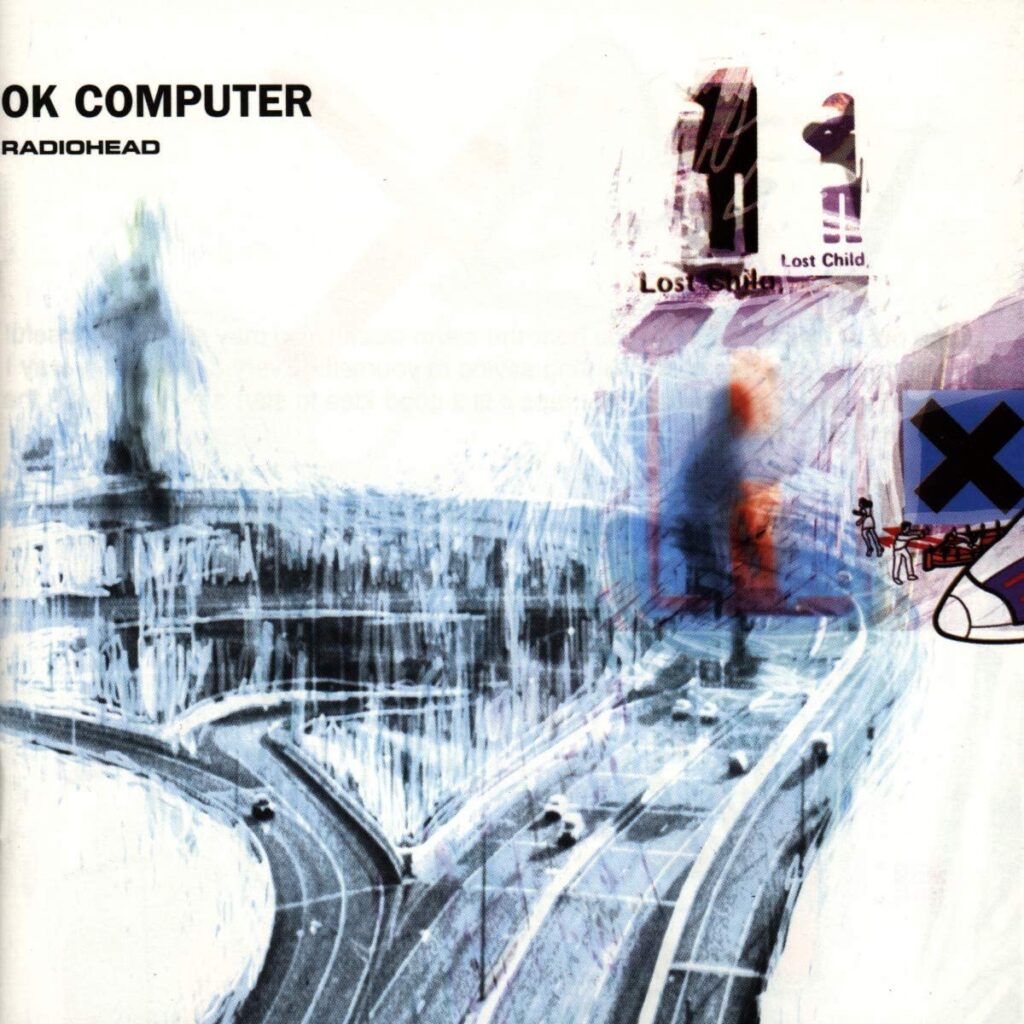
Thom Yorke was clearly singing about alienation, loneliness and the idiocy of life in the industrialised world. These ideas were expressed through a beguiling mix of the abstract ideas and language that sounded more personal. This combination was always hard to untangle. Was the genesis of this song direct experience, or something more general? By keeping the listener guessing and stubbornly refusing to explain anything didactically gave the whole record a wonderful mystery. OK Computer is clearly a work of sophisticated intellects but as a listener you are not beaten over the head with this fact.
Later I got into Kid A which is the complete opposite of OK Computer but equally a masterpiece. I have written this before but it bares repeating but one of the things that I have always admired about Radiohead is their willingness to take risks. Many artists get famous for doing one thing and continue to capitalise on that until they have exhausted the formula. Radiohead have never stayed in on stylistic place for too long. I may not have always liked the result but that is not the point, without taking genuine risks true success and failure are not possible. As bad as albums like The King of Limbs are they are a testament to artistic adventurousness.
I like Radiohead because they refuse to be attached to any particular genre or style. There designation by most people as a “rock” band does not make much sense as apart from the presence of electric guitar in their music, they do not owe or have much in common with any band that is usually tied to that word. Perhaps what this really reveals is that the term “rock” has been used so much as to become nebulous. Regardless, I have always felt Radiohead have gone for what is musical not what is within the confines of their “genre”. After the success of Kid A they moved back to a sound more heavily reminiscent of their early days this produced the excellent series of albums my favorite being In Rainbows.
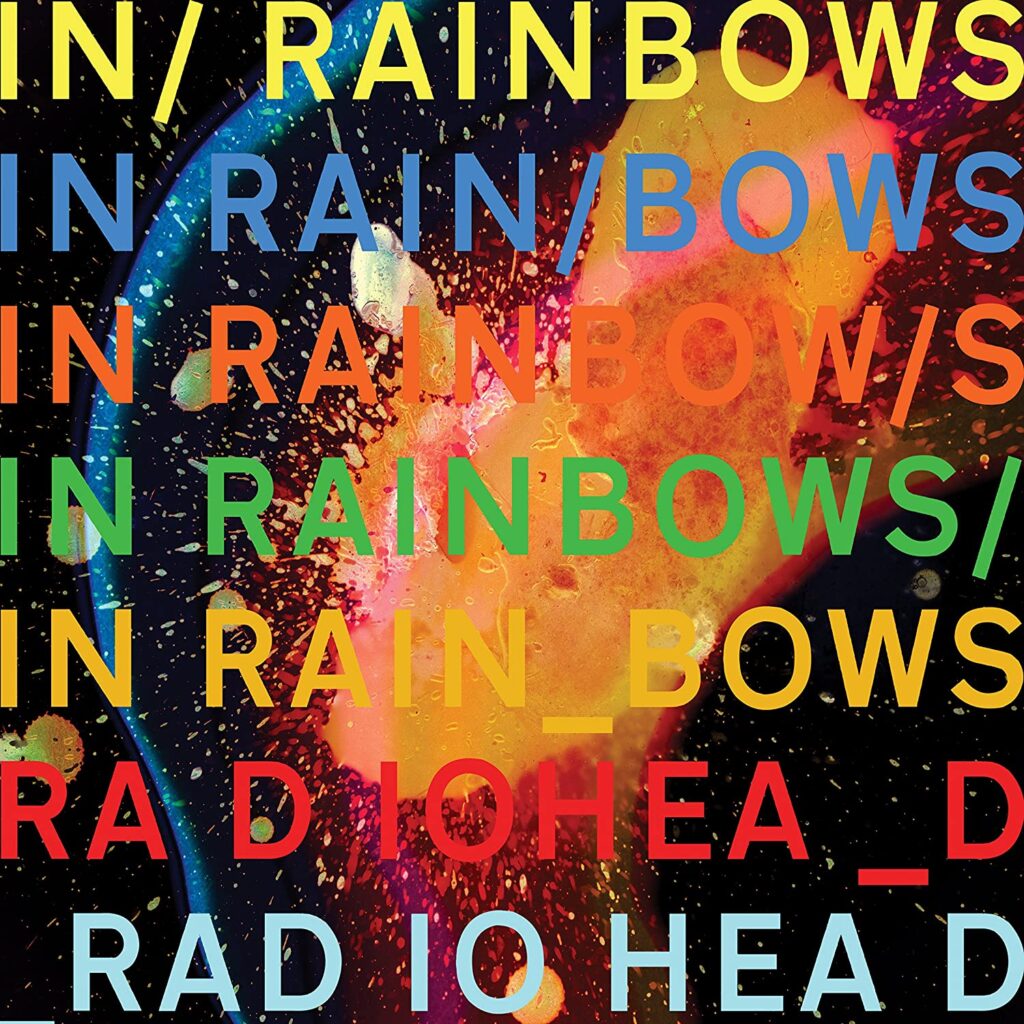
This album encapsulates everything that is great about the band. It contains the perfect mix of strangeness and familiarity. What is strange is that the cryptic nature of the lyrics is pushed to such an extent that any interpretation of them seems like mere guess work. What is familiar here is that the more conventional instruments (guitars, drums and bass) have a stronger presence.
It is surprising that such a unconventional band could have become so popular. I like Radiohead because they are a multi-directional band. By this I mean that their music operates on many different levels, on the one hand the songs are musical statements of emotional feeling that I have alluded to previously. However, their later compositions are always haunted by an undeniable strangeness the emotional atmosphere is generally dark but mostly not in an overtly violent way with notable exceptions such as the song Paranoid Android. To try and articulate my exact point is quite difficult focusing on a specific song may be illuminating. The song Reckoner could be interpreted as simple collection of interesting lyrically ideas but there is something in the performance of the song on the album that seems to suggest there is something more going on, but what that is exactly is hard to identify. There is something of the empyrean.
It my hope that a band as great and as iconoclastic as Radiohead can gain critical mass in the future but I have my doubts. As recent events have continued the trend tightening the strangle hold of musicians and music. The noise is getting louder every day, you almost can’t hear it any more.
